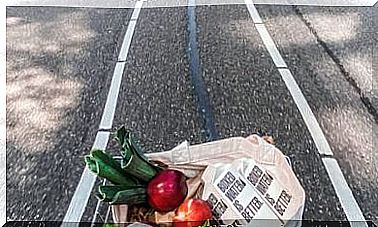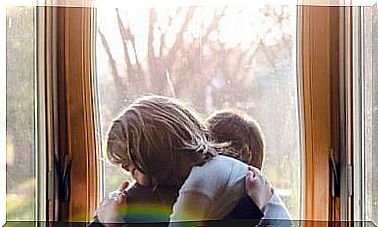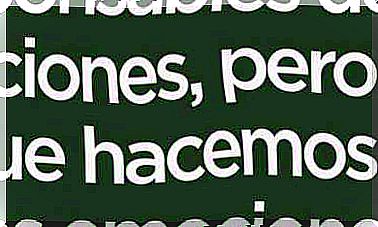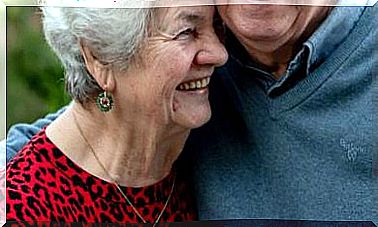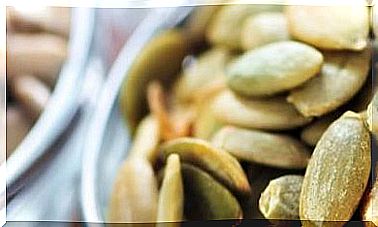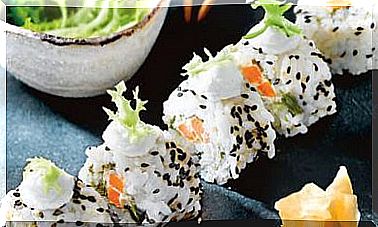“Betting On Clean And Zero-kilometer Food Is Investing In Health”
For the eco-cook Lola Puig, co-founder of the Km0 Restaurants network and defender of slow food, choose organic, local and fair food it is decisive for our health and that of the planet.
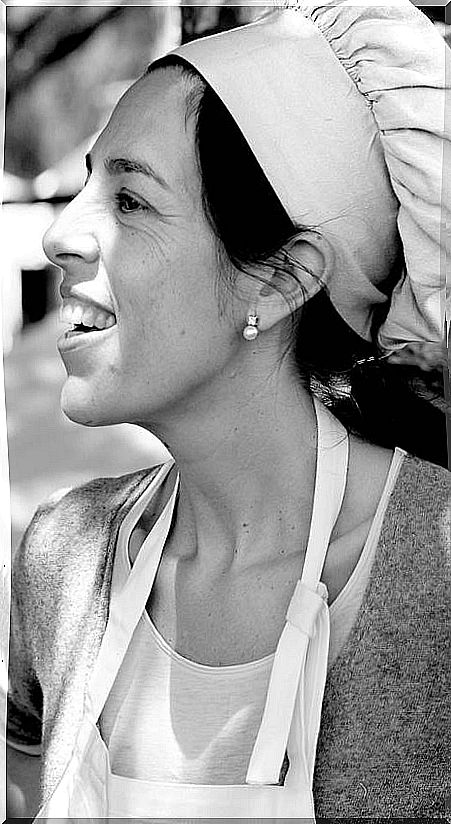
Awareness about the importance of food and good, clean, fair and zero kilometer food is growing. Of this, and that we can change the world from the kitchen, Lola Puig, eco-cook and mother of two daughters, is convinced
Lola Puig had been running the Restaurant km0 El Fort, in Ullastret (Girona), for more than twenty years. A year ago, he left the restaurant industry to focus on promoting the zero kilometer eco-restoration from the accompaniment, advising restoration companies to evolve towards a more sustainable restoration and doing nutritional accompaniment at an individualized and family level.
Her involvement in the dissemination of sustainable food has also led her to be a co-founder of the Slow Food km0 Restaurants movement and co-founder of the Mon Empordà Ecomercats. She also has a diploma in Traditional Chinese Medicine and Naturopathy.
Lola Puig: “Maca, chia … are a fad and come from afar. For me there is only the local”
We spoke with her about the importance of eating local and organic, as well as the current panorama of the Slow Food movement and zero-kilometer restaurants. He has always defended that the km0 philosophy must be linked to the ecological and that consuming locally is what makes the most sense to a diet consistent with one’s own health and that of the planet. Some of the decisions made by restaurants that are local are also questioned, such as the use of zero km water.
–What led you to co-found the Slow Food Restaurant Km0 movement in Catalonia more than a decade ago?
–We were several chefs who founded it about 11 years ago. Every two years the international Slow Food movement holds a congress in Turin, Italy, called Terra Madre. It brings together Slow Food people from all over the world: producers, people who are within the movement in different countries and in 2008 it was a monograph of chefs.
I went every two years and that year we were thousands of cooks from all over the world, because it was the year dedicated to cooks. We were a good group from Spain. At the congress I met four chefs from Catalonia and together we decided that something had to be done from the kitchen to preserve biodiversity.
–Protect biodiversity from the kitchen?
–Yes, the Slow Food movement was born to recover biodiversity on the planet. After the congress we decided to “put a thread on the needle” and from the kitchen to do something. We met with Rossend Domenech, a correspondent for El Periódico in Rome, and he told us about a union project that was kilometer zero. They worked with products no further than 100 km and were dedicated to promoting and recovering endangered seeds or animal species.
When we arrived in Spain we decided to get to work on it. Since 2008, for 9 months, we have been establishing all the regulations and the operation of kilometer zero and in 2009 we distributed the first plates. All restaurants have a plaque that is renewed every year.
“The Slow Food movement was born to recover biodiversity on the planet.”
– How was a zero kilometer restaurant project received by society at that time?
– At that time there was a boom, because the press needs topics and we did a good job of press. An informative, communicative boom, but not so much in that restaurants we noticed so many changes. More movement from many interviews and articles than from people who came to look for a Km0.
Yes there was, between 2007 and 2011, an injection of money from European economic funds for projects on ecology and sustainability. You could tell that healthy eating was spreading. And, for the same reason, kilometer zero became interesting.
– Is the situation very different today?
–After 11 years, people are already aware of what happens at kilometer zero and they come looking for you. There are people right now who only go to a zero kilometer restaurant. There is so much more awareness than at that time.
On the other hand, I was always in favor, from the beginning, of being organic, but my male colleagues did not accept it as a requirement. Now, at the moment, one of the most important requirements is that everything is ecological. We have evolved a lot in this regard.
–What does it imply in the shopping basket to consume zero kilometer food? Is something more expensive?
–At an economic level, if you buy organic but local, from the direct producer, in season, and buy basic raw materials, the price difference is not much.
It is true that, at the end of the week, the purchase price ends up being a little more expensive, 25-30% more. But if later you get sick because you eat badly and you count everything you will spend on medicine, on therapists, this difference is not significant with respect to what you spend for following a bad diet.
That extra spending translates into health benefits and you are helping the local economy, which is very important. We have seen it in times of health alert!
“If you get sick because you eat badly and you count what you will spend on medicine, the difference in price of buying local and organic is not significant.”
– Have people wanted to eat healthier during confinement?
– All organic producers throughout Catalonia, and I know many, we have been talking during the confinement. They all doubled sales. People are establishing the habit of going to buy the basket from the producer. Not all of them are organic … because now the non-organic ones have also been encouraged to make baskets.
Sales have risen and that means that people give much more importance to eating well, eating healthy, eating fresh. If you buy fresh, the taste has nothing to do with it. Then there is the health impact, which in the long run influences the family economy.
–Even so, are there ways to reduce this spending in the shopping basket without giving up zero kilometer food?
–You have the option, for example, that if you want bread, you buy the flour and you do it. I went to the extreme of making the flours and cereal flakes with my own grinder. Because the price of spelled, wheat or barley seed has nothing to do with the price of flake or flour, it is quite different.
Nor is it the same, when we talk about hamburgers, also vegetables, chopping the “meat” yourself than buying the hamburger made. And let’s not talk about the sauces: a pesto, a mustard, a mayonnaise … All this homemade reduces the price sometimes up to 1/5 part.
In addition, it is very important that you buy in bulk, because you buy thinking about what you need and not the package. And, when you buy what you need, you spend what you need and there is not so much economic and food waste.
“If we make things at home, like bread, our veggie burgers or sauces, the price can be a fifth.”
– Is it also about recovering the habit of cooking a little more?
–When food is made at home, there is a very different energy in people than when buying a paella that comes from abroad, a ready-made supermarket potato omelette or a takeout. If it is not cooked, the house is not a house, it does not smell like home.
When the house is cooked it smells of food, it forces the chup-chup to be heard, and everyone is activated. It should be normal and yet it is rare these days.
–Let’s talk about zero kilometer food and slow food. What kinds of products would enter the Slow Food movement and what foods are avoided?
–Everything that comes from the countryside: fruits, vegetables, cereals, nuts, wine of course, fish, meat… Everything that can be bought organic and non-transgenic. One of the bets of the kilometer zero is to prioritize the non-transgenic.
GMOs are prohibited in the Slow Food movement and we are dedicated to explaining what GMOs are and why we don’t want them. Neither do endangered animal species enter.
With endangered species, animals or plant varieties, we work so that they can reproduce more and make them known. First, what little there is is worked on and the planting or caring for animals of native breeds that are in danger of extinction is encouraged.
“GMOs and endangered species are prohibited in slow food.”
-In the new vegan kitchen and baking, dates, cashews, superfoods and other distant products are used a lot. How does this fit in with the local philosophy?
-Fatal! Many are substituting dates for dried figs or plums, raisins or dried apricots, and cashews for almonds.
Maca, chia … are a fad and come from afar. For me there is only the local. If I travel or when I have lived in Latin America, I eat mangoes and papayas because it is what is there, but bring magicians, papayas and so much avocado with the problem of water, or quinoa from the Incas, for what? To be healthier ? It doesn’t make any sense to me.
–Are there no far-off products in Slow Food restaurants?
–The distant products that we have in Slow Food restaurants are pepper, cinnamon, unrefined golden cane sugar, vanilla, chocolate and coffee.
We are so used to them that a restaurant without coffee … of course not. We do want them to be products that come from small projects of Slow Food philosophy or at least that share a similar philosophy: at least from small producers and that are clean, good and fair products. That is to say, that they are ecological, without chemicals or transgenic, and that to produce them the worker is well compensated, that the producer is well paid and the prices are fair for the consumer. Well, and that it is delicious on a gastronomic level!
“When we use distant products, we want them to be ecological, clean, good and fair.”
–There is also zero km water. What do you think of her?
–The zero kilometer water is a great dilemma. In Slow Food restaurants we not only take care of the food, but also all the details involved in sustainability.
Little by little we have been incorporating aspects such as the use of renewable energies. Many chefs in zero kilometer restaurants already have an electric car, for example. They also changed all the bulbs to LED and the faucet inlets to low-consumption jets. And when they can make powerful changes, such as going to geothermal energy or more coherent and more accessible renewable energy depending on where the restaurant is. Many have solar panels.
However, the issue of water is something that has come later. It is one of the latest additions. They are putting in reverse osmosis devices. They fill glass bottles and bring them to the table. But there is a big dilemma, because there is the part that a lot of water is used : to filter the water, depending on the device used, for each liter of water you can throw away 3. And then, a water comes out that is not alive, structurally it is not H20.
All restaurants are using osmosis devices both for washing food and water for cooking and drinking, but it is one of the issues that I have less clear.
–Are you also making changes when cleaning, such as the use of detergents?
– It is another of the novelties. As a detergent, many are using ozone, as we have seen that it is the most ecological there is. Others are making their own detergent products or working with effective microorganisms, which is a very interesting, inexpensive and not harmful system. And others use lemon peels to make a disinfectant for bathrooms and pots, which is also a very interesting option for dish and glass washing machines.
–How many km0 restaurants are there now in Spain and Catalonia?
–In Spain there are more than 100, according to the online count. In Catalonia there are about 87 restaurants and 10 schools. In Valencia, there are 2. In the Basque Country, 13, and Santiago de Compostela has 8 and 4 schools, 1 in Madrid. In any case, not all of them follow the same requirements, as there are no requirements that they are all ecological. There is an internal debate and Slow Food in Spain is strong, but also a lot of marketing in some cases.
“Not all km0 restaurants follow the same requirements.”
–Are there any specialized in vegetarian and / or vegan cuisine?
–Anay Bueno, Mariano Bueno’s son, just entered Km0 and has a vegetarian restaurant in Benicarló called Cor de carxofa (“artichoke heart”). There is also a vegan one in Figueras called Integral. They make it all very tasty, by the way.
-You are a great advocate that we can change the planet from the kitchen …
-Very easy. I give 11 basic keys to be self-sufficient and eat sustainably. We could do an article!
-We will do it!
-Let’s do it …
- You can read the 11 keys to being self-sufficient and eating sustainably proposed by Lola Puig, from the Slow Food movement, here.
